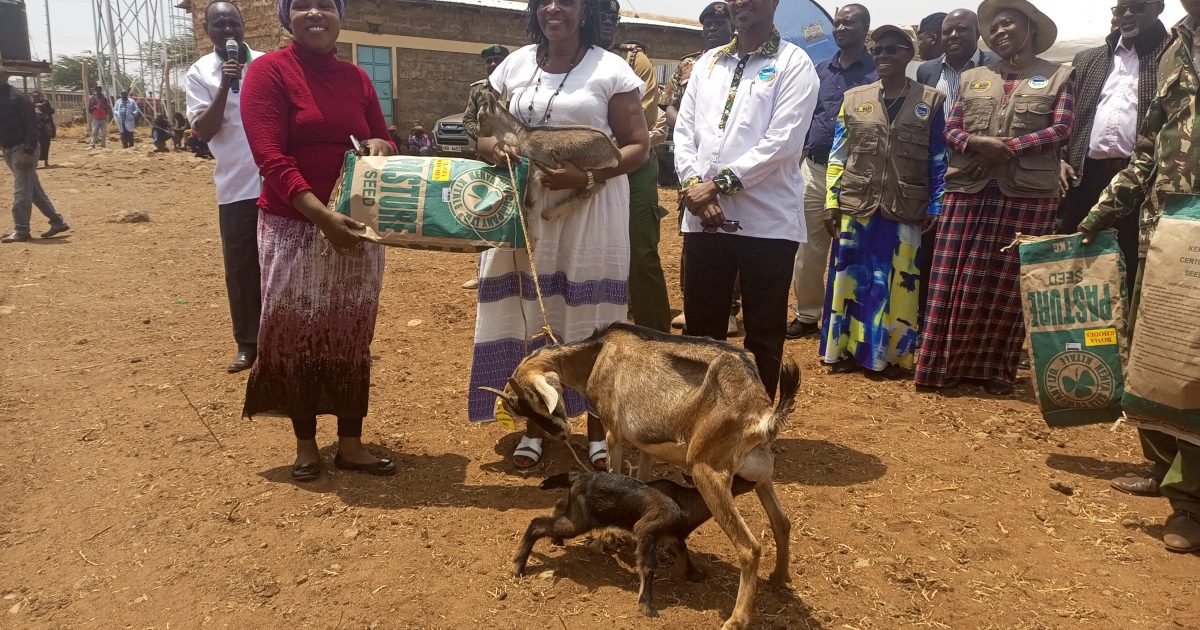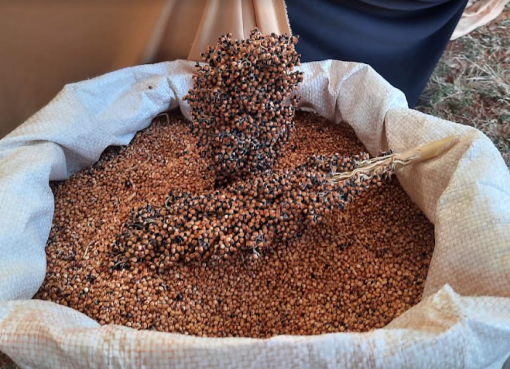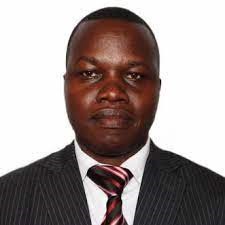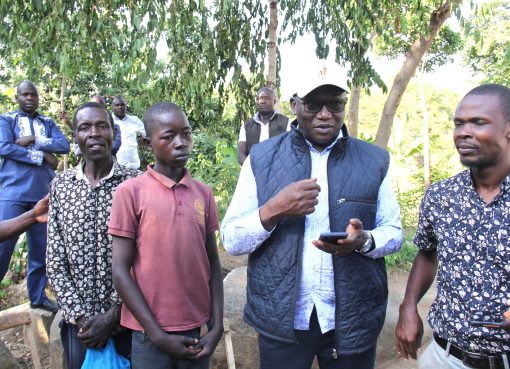The National Drought Management Authority (NDMA) yesterday distributed dairy goats to the residents of Kandebene, which is one of the Semi-arid areas in Meru County, in a bid to enhance food security and combat the menace of malnutrition in drought-stricken areas.
In a speech read by ASAL Secretary Maria Cherono on behalf of PS Arid and Semi-Arid Lands (ASALs) and Regional Development Harsama Kello while launching the Kandebene goat project, the PS noted that this was one of the ways the state department was trying to build drought resilience in the 23 counties that are in this category.
The PS said the Sh7.7 million project was an initiative funded by the European Union in collaboration with the County government of Meru.
“The European Union has contributed Sh4.93million in buying 142 does and eight bucks together with the provision of seeds for fodder production, the community Sh2.3million in terms of construction of the goat houses and feeding while the county government has put in Sh447,000 in terms of training, monitoring and evaluation as well as bucks toping,” said Mr Kello.
He added that the initiative will improve food security. provide drought resilience for communities in these locations as well as address the issue of malnutrition considering goat milk has very high nutritional value.
“We want to appreciate our partners European Union who have contributed substantially to this project, the county government of Meru, and the community because they also contributed and I believe the partnerships that we have put in place will provide an element of sustainability to this project,” said Mr Kello.
The community is well-structured with operational committees and they are already trained meaning they understand their roles in the project.
The PS further added that one of the critical elements of the project is the fact that the community will benefit in a way that when there are new offspring, they will be sharing with their neighbours, an innovative way of ensuring beneficiaries increase and enhance multiplicity in terms of caring for the goats.
“This is an area that we even need to look for other partners and encourage them to come on board so that the community can get support in terms of alternative livelihood to address effects of drought and climate change in general,” said Mr Kello.
He added that a total of 23 counties are under ASAL areas and they all face similar challenges characterised by drought, lack of food and water, issues of insecurity and so as a government they were working with several development partners Non-Governmental Organisations, Community Based Organisations, Churches, and individuals with a strategy to embrace partnerships.
“When you work with communities, they identify the issues for the specific location and the county and they come up with their priority list as the challenges vary from one area to another,” said Mr Kello.
NDMA Chief Executive Officer Hared Adan said the project will enhance dairy goat breed improvement in terms of distribution of dairy goats to households in Athwana ward, a project that was conceived as a result of a participatory assessment which was conducted in March 2022 with the community prioritised their needs.
He said this is in line with President Willaim Ruto’s Bottom-Up Economic Transformation agenda where they are supposed to address the needs of the common person.
“NDMA being a national government entity under the ministry of ASAL and Regional Development, any project that we undertake we engage the community to understand what are their needs and together with our partners which is the County government of Meru, and other stakeholders, we work on addressing their needs,” said Mr Adan.
The community has put up an agreement where the first female offspring is given to the next neighbour and ideally having the project benefits 284 households.
“The community is in fact following what the Quran and the Bible have indicated that we need to love our neighbours the way we love ourselves,” said Mr Adan.
As NDMA, he added, we will also do the monitoring to see the impact of the project and keep on supporting this community going into the long term.
He added that the Alpine goats are ideal for the area as they require very little space and don’t consume a lot of feeds and water, and on average, farmers will be getting about four litres per day.
They will also empower women to sell at least a litre while also consuming three litres within the household especially children and lactating mothers owing to their high nutritional value.
He said they have done a similar project in Kieni North in Nyeri, working on a similar one in Laikipia, supported households in terms of camels’ distribution in West Pokot, distributed Gala goats in Kilifi, Garissa, Marsabit, and Mandera; Baringo is also set to benefit in a few months.
Communities usually decide on their project needs while NDMA does resource mobilisation.
By Dickson Mwiti





